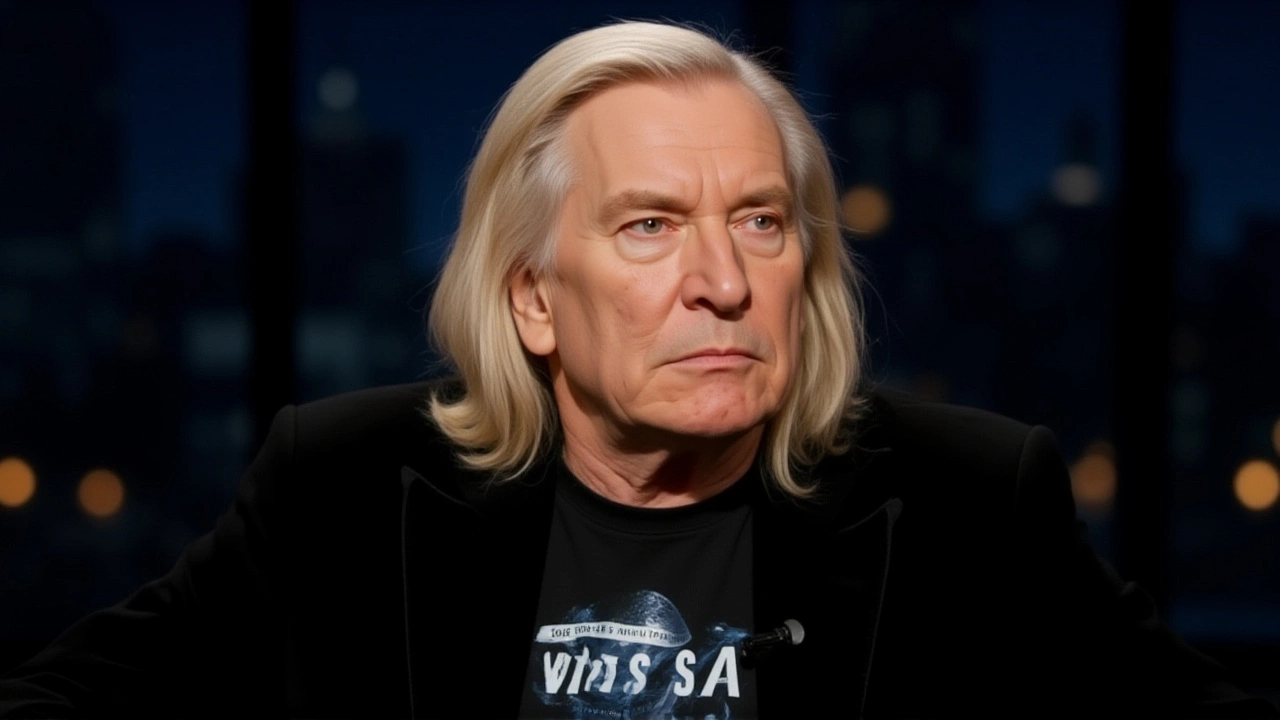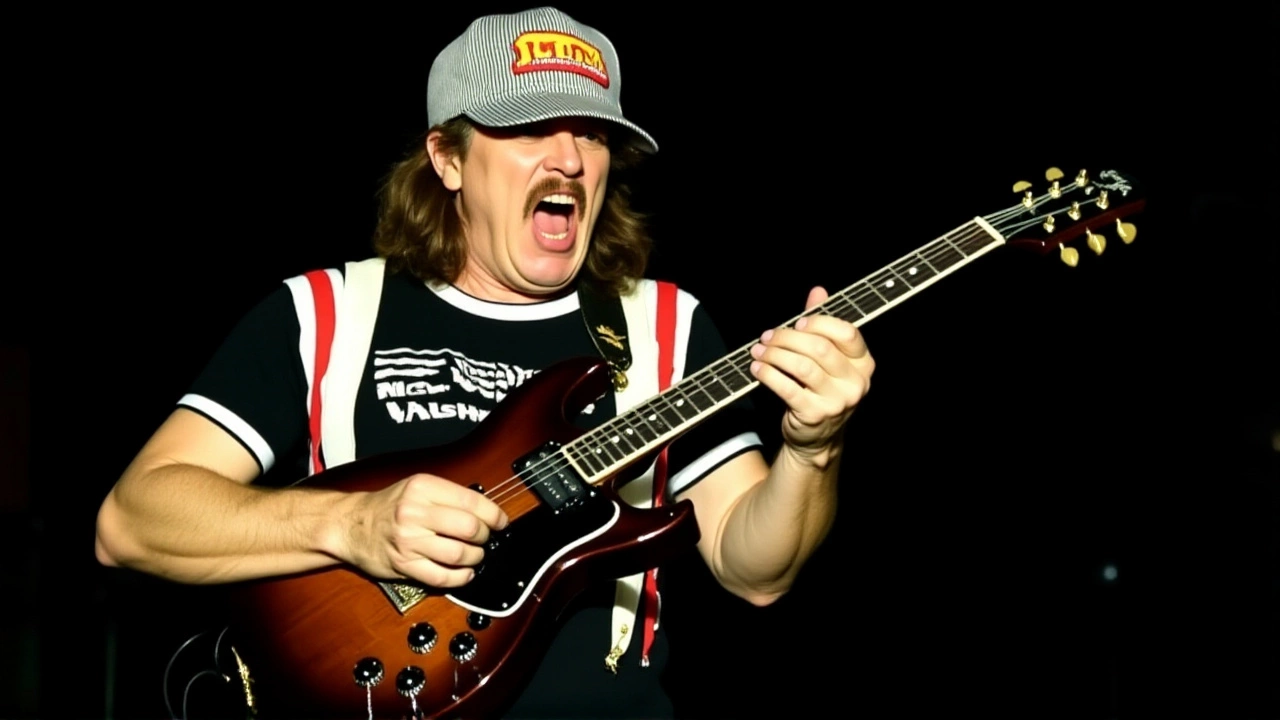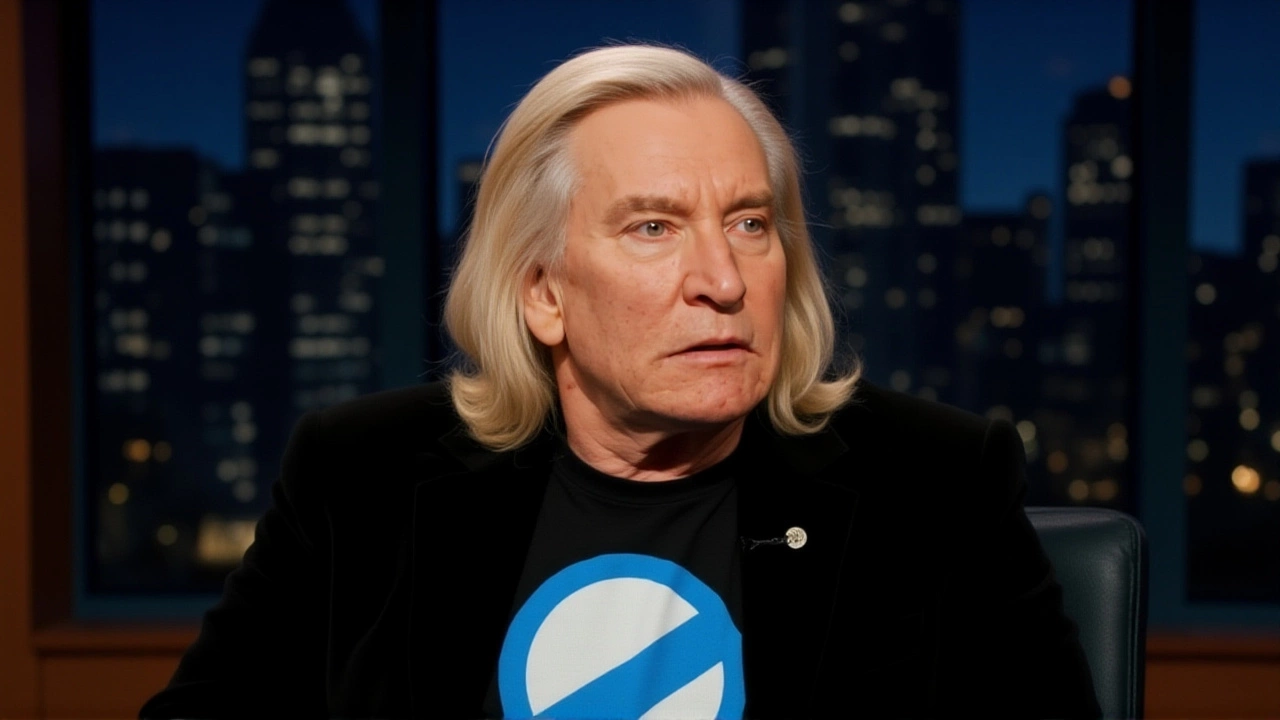When Joe Walsh stepped onto the stage in Wichita, Kansas, on November 16, 2025, he didn’t just play guitar—he exhaled. After more than 50 years in the spotlight, the Joe Walsh who once battled addiction, buried his father in war, and wrote songs that cracked open his soul, finally said one thing out loud: "It gave me closure." The song? Not named. But the weight behind it? Unmistakable.
The Song That Didn’t Need a Title
Far Out Magazine broke the story on May 20, 2025, quoting Walsh’s quiet revelation: a single track, unspoken, had healed him in ways no interview, no award, no stadium crowd ever could. Journalist Timothy Coffman noted Walsh’s words weren’t theatrical—they were weary, sincere, almost reluctant. "It’s not about fame," Walsh reportedly added in a private conversation. "It’s about silence after the storm. And for the first time, it didn’t scare me." Three songs from Walsh’s catalog have emerged as likely candidates, each echoing his inner turmoil. "Life of Illusion"—a 1978 track—asks how we know love is real when we’ve never seen it modeled. "Meadows" wrestles with faith, doubt, and the ghost of something greater. And "The Confessor"? That one’s a confession booth in three minutes, raw with loss and insecurity. Christian Quilici, Walsh’s son and co-founder of VetsAid, told KMUW in November 2025: "His art has long reflected some kind of underlying pain, striking a delicate balance between the nagging awareness of mortality and a celebration of its lighter moments."Why This Song Wasn’t Just Music
Walsh, born Joseph Fidler Walsh on November 20, 1947, in Wichita, Kansas, didn’t just write songs—he used them as lifelines. His father’s death in military service left a wound that never fully closed. By his own admission, he spent years drowning in alcohol and pills, chasing the numbness that music once gave him. "I know how it feels," he said in 2025, speaking of veterans’ grief. "And I’ve been there." The turning point? Not a rehab center. Not a celebrity intervention. It was a dog named Smokey. "I don’t know what I would have done without Smokey pulling me out of the darkest places," Walsh said in a November 2025 YouTube video. "Now that silence has returned, only this time it’s permanent." Smokey, his loyal companion through recovery, passed away years ago. But the silence he left behind? Walsh says it’s the same silence that now lives inside his music.He cut ties with toxic influences. Found friends like Ringo Starr—whom Walsh referred to as "Ringoar" in the transcript—who walked the same road of sobriety. "Everyday sober became its own victory," he said. And that’s when the healing song came to him—not as a revelation, but as a whisper.

VetsAid: Turning Pain Into Purpose
In 2018, Walsh and Christian Quilici launched VetsAid, a 501(c)(3) nonprofit helping veterans and Gold Star families. The organization’s 2025 event in Wichita drew legends: Vince Gill, Susan Tedeschi, Derek Trucks, Nathaniel Rateliff, and—unexpectedly—Jimmy Webb, who played piano as Walsh sang "Wichita Lineman." The Intertribal Indian Council Color Guard stood at attention. The Wichita State Choral Group sang hymns. And a 14-year-old guitarist named Roy Orbison the Third opened the show.The concert raised $1.2 million. But the real win? The $400,000 in grants redirected to New York and New Jersey veterans groups after the 8th annual concert was canceled due to "circumstances beyond organizers’ control," according to Walsh’s blog. "It’s not about the show," he told USA TODAY Life in an Instagram reel. "It’s about making a difference in somebody’s life. That’s the kindest, best reward I’ve ever known."
Music as Medicine
Walsh’s mother, who took him to the opera as a child and filled their home with music, never saw him become a Rock and Roll Hall of Famer. But she heard the pain in his early chords. "She didn’t fix me," Walsh once said. "She just let me feel it." Now, his music does the same for others. At the VetsAid event, a veteran in the front row wept as Walsh sang an unreleased verse: "I buried my father in a field they called a war / Now I bury my demons where the wildflowers grow." "Those close to him often say that Joe’s way of healing was to help others," the YouTube transcript noted. "Every benefit concert, every recovery campaign was also a conversation with his own past."
What’s Next?
Walsh is working on a memoir, tentatively titled "The Quiet After the Noise." He’s also planning a low-key acoustic tour in 2026, not for crowds, but for VA hospitals and recovery centers. No tickets. No media. Just music. And silence. The kind that finally feels like peace.Frequently Asked Questions
What song did Joe Walsh say gave him closure?
The exact song title hasn’t been publicly confirmed, but three tracks from Walsh’s catalog are strongly suggested by those close to him: "Life of Illusion," "Meadows," and "The Confessor." Each explores themes of loss, identity, and spiritual doubt—mirroring Walsh’s decades-long battle with addiction and grief. His son Christian Quilici and journalists at KMUW note these songs serve as emotional archives of his inner struggles.
How did Joe Walsh’s father’s death influence his work?
Walsh’s father died in military service, a loss that left a lasting void. He’s spoken openly about how that grief fueled his substance abuse and later, his mission with VetsAid. In interviews, he connects his own pain to that of Gold Star families and veterans struggling with PTSD. "I know how it feels," he said in 2025—a phrase he repeats like a mantra. His music and charity work became acts of tribute, not just therapy.
What is VetsAid, and how does Joe Walsh contribute?
VetsAid is a national 501(c)(3) nonprofit co-founded by Joe Walsh and his son Christian Quilici to support veterans and Gold Star families. Walsh organizes benefit concerts, raises funds, and personally visits recovery centers. In 2025, the organization distributed $400,000 in grants to veterans groups in New York and New Jersey after canceling its annual concert. It’s not a side project—it’s his life’s work, fueled by personal healing.
Why is the dog named Smokey important to this story?
Smokey, Walsh’s loyal companion during his recovery, symbolized stability when his world was crumbling. In a 2025 video, Walsh said, "I don’t know what I would have done without Smokey pulling me out of the darkest places." The dog’s passing marked the end of one chapter and the quiet beginning of another. The silence that followed, Walsh says, was no longer terrifying—it was healing. Smokey didn’t cure him, but he gave him the space to heal himself.
What’s the connection between Joe Walsh’s music and his activism?
For Walsh, music and activism are inseparable. His songs are confessions; his concerts are community gatherings. He doesn’t perform for applause—he performs to say, "You’re not alone." At VetsAid events, he sings to people who’ve lost limbs, loved ones, or hope. His music isn’t entertainment—it’s a bridge between his past and theirs. That’s why he calls helping others "the kindest reward."
Will Joe Walsh ever reveal the name of the healing song?
Walsh has made it clear he won’t name it publicly—not because he’s secretive, but because the song belongs to the silence. "Some things aren’t meant to be headlines," he told a close friend in 2025. "They’re meant to be felt." Fans suspect it may appear on his next album, if he releases one. But for now, the song exists only in the quiet moments between chords—and in the hearts of those who’ve survived their own storms.
